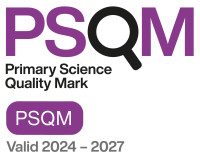Early Years
EYFS Rationale
In the Early Years at Bilton Grange Primary School, children learn within a safe and secure learning environment that equips them with the cultural capital for their educational journey ahead.
We ensure children are given a range of highly-engaging and enjoyable play-based learning experiences which enable them to become confident and independent learners.
We endeavour to offer a curriculum that is based on real life experiences, involves the child and most importantly is planned through careful assessment of their needs and interests.
The Early Adopter Foundation Stage Framework and The Early Adopter Development Matters are the basis of our Early Years curriculum and learning is planned through exciting topics, led by a ‘wow’ starter. The four aspects of British Values; democracy, the rule of law, individual liberty and respect are threaded throughout our topics.
Children receive a balance of adult focused, adult initiated and child led activities, which are adapted throughout the year as they transition into Year 1. Throughout the day the children have the opportunity to learn outside and each afternoon they can learn throughout both classroom environments and in our outside learning area.
An Enabling Environment
We offer an environment that supports children's independence both indoors and outside. Areas of learning are clearly defined and provide a wide range of resources that are varied, open-ended and of a high quality. This gives children the opportunity to select resources to support their chosen activity. Each week specific areas of the environment are enhanced and children are set challenges. They are able to hear these challenges through talk buttons and key vocabulary is clearly displayed to enable adults to further support and challenge the children.
Quality Interactions
Adults build valuable and trusting relationships through adult focused activities, observing and interacting with the children in the learning environment. Our adults know the children very well and have a sound understanding of child development. As well as provision enhancements, the children have the opportunity to initiate their own learning and the adults support them to extend the learning opportunities. Children who require more support in this area receive 1:1 time and small group times led by an adult.
Progress, Development and Assessment
Children are assessed weekly in Maths, Reading and Writing through small group work, whole-class carpet times and whilst learning independently in the learning environment. In team meetings progress is shared and the next steps of learning discussed. Children’s independent learning is observed and recorded in their individual learning journey. Each term there is a focus in the areas of Expressive Arts and Design and Understanding of the World. Each child participates to ensure they are practising and developing vital skills.
Parental Involvement
We believe that all parents have an important role to play in the education of their child. We recognise the role that parents have played, and their future role. In reception, parents are encouraged to support children’s learning through completing reading records, simple homework activities and by attending focus workshops throughout the year. Children are able to use a home-school book to communicate and adults in school are available before and after school. We value the importance of the three-way relationship between children, parents and staff, as it enables children to make good progress and to maximise their potential. Formal parent meetings are offered in the Autumn and Spring term, where parents have the opportunity to speak to teachers to discuss their child’s progress and development, their next steps in learning and to view their child’s work.
Inclusion
Our whole school ethos, as well as that of the Early Years, embraces inclusion. We recognise and respect the abilities and strengths of our children at all levels of development and the wealth of knowledge and experience that they bring from their differing backgrounds and cultures. We give our children every opportunity to achieve their best. We do this by taking account of our children’s range of life experiences when planning for their learning and we set realistic and challenging expectations that meet the needs of individual children, so that children are able to reach their full potential. We achieve this by planning to meet the needs of all children, including children with special educational needs, children who are more able, children from all social and cultural backgrounds, and children of different ethnic groups. We monitor children’s progress and take action to provide support as necessary. Where a specific need is identified we will liaise with the Special Educational Needs Co-Ordinator and seek advice from outside agencies, such as the speech and language service.
Early Years Pupil Premium
We endeavour to identify our disadvantaged pupils and inform parents or carers of their opportunity to apply for their child’s entitlement to extra funding in school. All extra funding, we receive will be used to support areas in which we identify that the child will best benefit. We will track children’s progress to ensure that they are making good progress and to ensure that support is adjusted to target specific areas as the child develops.
Transition
Ensuring a smooth transition into EYFS and from EYFS into KS1 is a key priority. Reception teachers endeavour to visit or speak to each child’s key person from their nursery setting to discuss their development, attainment and progress. Children are then invited in for two stay and play sessions and a parent’s meeting, providing information about routines and the curriculum. On the second stay and play session parents are encouraged to join their child to have lunch in our school canteen.

















